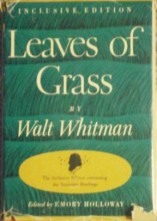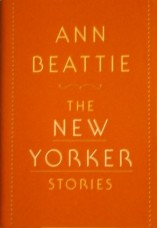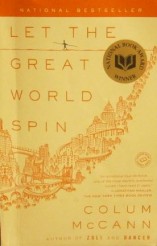 These are the final sentences in Alice Munro’s collection of short stories, Dear Life, which won the Nobel Prize. I believe that the character is lying and that she wishes she could forgive herself. I’m sure that other readers have come to different conclusions. These stories are complex, with characters … Read More
These are the final sentences in Alice Munro’s collection of short stories, Dear Life, which won the Nobel Prize. I believe that the character is lying and that she wishes she could forgive herself. I’m sure that other readers have come to different conclusions. These stories are complex, with characters … Read More
Author: Tony Herman
“Reflection is a mighty endeavor…no occupation is more powerful or more feeble, depending on the soul”
“There’s a certain Slant of light, Winter Afternoons — that oppresses, like the Heft of Cathedral Tunes –“
 Where would we be, during difficult winters like this one, without the help of Emily Dickinson? This poem ends with these lines:
Where would we be, during difficult winters like this one, without the help of Emily Dickinson? This poem ends with these lines:
“When it comes, the Landscape listens —
Shadows — hold their breath —
When it goes, ’tis like the Distance
On the look of Death — ”… Read More
“I gave them all the truth and none of the honesty.”
“Maybe imagination is just a form of memory, locked deep in . . . eternity.”
 The poet Ron Wallace can be described as “part Emily Dickinson and part Harpo Marx” because of his dark wit, which you can see in the opening of this sonnet:
The poet Ron Wallace can be described as “part Emily Dickinson and part Harpo Marx” because of his dark wit, which you can see in the opening of this sonnet:
The Bad Sonnet
It stayed up late, refused to go to bed,
and when it did it sang loud songs … Read More
“To think I believed you were charming. It turns out you’re just a writer.”
“Education and safety are unavoidably interrelated.”
 Should colleges take care of students? How? To what extent? When affordable education is a priority, is it also important to install sirens, locks on classroom doors, and help students with mental illness? I can’t think of anyone who can provide more interesting ideas on these issues than Peter Lake… Read More
Should colleges take care of students? How? To what extent? When affordable education is a priority, is it also important to install sirens, locks on classroom doors, and help students with mental illness? I can’t think of anyone who can provide more interesting ideas on these issues than Peter Lake… Read More
“Whoever you are come travel with me. Traveling with me you find what never tires.”
 The poem continues: “The earth never tires. The earth is rude, silent incomprehensible at first. . . be not discouraged, keep on. . . there are divine things more beautiful than words can tell.” I once wrote these words on my kitchen wall so that my kids would grow up … Read More
The poem continues: “The earth never tires. The earth is rude, silent incomprehensible at first. . . be not discouraged, keep on. . . there are divine things more beautiful than words can tell.” I once wrote these words on my kitchen wall so that my kids would grow up … Read More
“No one was coming toward the house yet, but things wouldn’t stay the way they were much longer.”
 When Ann Beattie met John Updike, he said “You figured out how to write an entirely different kind of story.” Her stories were “the” stories my English department discussed in the 1980s because they were so revolutionary. T. Coraghessan Boyle wrote in the New York Times, “Her stories are … Read More
When Ann Beattie met John Updike, he said “You figured out how to write an entirely different kind of story.” Her stories were “the” stories my English department discussed in the 1980s because they were so revolutionary. T. Coraghessan Boyle wrote in the New York Times, “Her stories are … Read More
“. . . Heaven may be only the mind’s fear of the wonders it imagines. . .”
 If you read only one poem today (or this week, or this month), let it be “Ancestral Lights” by Deborah Digges. Here is more of the sentence that the quotation comes from: “And though I know now that heaven may be only the mind’s fear of the … Read More
If you read only one poem today (or this week, or this month), let it be “Ancestral Lights” by Deborah Digges. Here is more of the sentence that the quotation comes from: “And though I know now that heaven may be only the mind’s fear of the … Read More
“His strong point [was] his odd ability to fall feetfirst into the little pocket of someone else’s world for those few seconds.”
 My favorite book of 2013 is about three grown-up siblings and their families, all of whom have one important thing in common: they aren’t where they wanted to be. They don’t feel at home in the choices that they’ve made. What’s remarkable about this novel is the way we see … Read More
My favorite book of 2013 is about three grown-up siblings and their families, all of whom have one important thing in common: they aren’t where they wanted to be. They don’t feel at home in the choices that they’ve made. What’s remarkable about this novel is the way we see … Read More
We want to walk into the pages…the closer we get, the better.
 What kind of reader are you? Anne Fadiman gives a book-length answer to that question in Ex Libris: Confessions of a Common Reader. She tells stories about her passion for reading books. For example, she describes the thrill of going to a place that a book describes, then reading … Read More
What kind of reader are you? Anne Fadiman gives a book-length answer to that question in Ex Libris: Confessions of a Common Reader. She tells stories about her passion for reading books. For example, she describes the thrill of going to a place that a book describes, then reading … Read More
Some time when the river is ice ask me what mistakes I have made.
“Even then I sensed this . . . would be at the core of my imagination for the rest of my life.”
 This novel is a collection of beautiful sentences about self-discovery. For example: “It was during these days that I first began to feel fissures opening in my soul, wounds of the sort that plunge some men into a deep, dark, lifelong loneliness for which there is no cure.” (52) When … Read More
This novel is a collection of beautiful sentences about self-discovery. For example: “It was during these days that I first began to feel fissures opening in my soul, wounds of the sort that plunge some men into a deep, dark, lifelong loneliness for which there is no cure.” (52) When … Read More
“Trust that the presence of long-held stories in your memories are there for reasons beyond entertainment.”
 John Dewey, one of my heroes, said that you don’t learn from experience — you learn from thinking about your experience. That’s the idea that What Our Stories Teach Us is based on. Linda K. Shadiow outlines a three-step process of description, interpretation, and analysis. Is this sort of reflection … Read More
John Dewey, one of my heroes, said that you don’t learn from experience — you learn from thinking about your experience. That’s the idea that What Our Stories Teach Us is based on. Linda K. Shadiow outlines a three-step process of description, interpretation, and analysis. Is this sort of reflection … Read More




